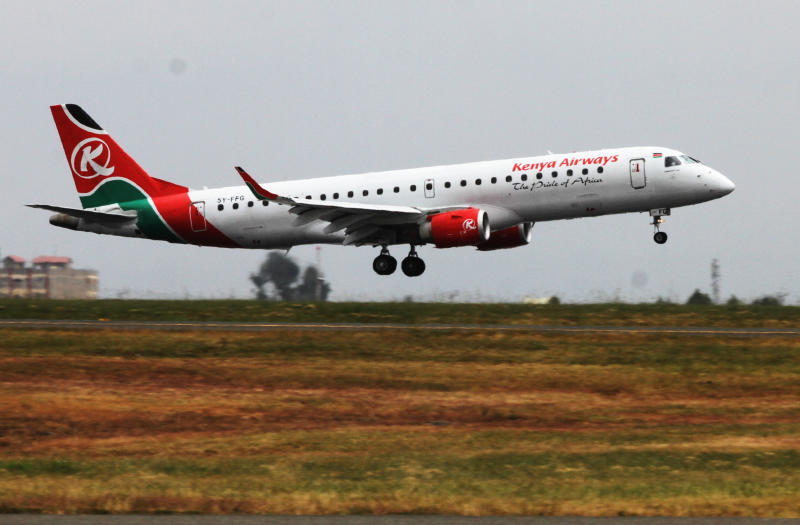Kenya Airways (KQ) aircraft lands at JKIA after the resumption of the International flights in August 2020 The eagle is reputed to fly at altitudes of up to 16,000 feet. This ability is dependent on a process of renewal of feathers, beak, and talons. This process is not painless and is necessary for the survival and longevity of the bird. It seems airlines take after eagles, periodically requiring an infusion of youthfulness to not only fly but also to live up to a ripe old age.
Kenya Airways (KQ) recently announced a net loss of Sh36.2 billion for the financial year ended December 2020. This loss has come on the back of strict Covid-19 control measures across the globe that crushed demand for air travel. And though the loss is egregious, it is not limited to KQ alone. Virtually all international airlines have made losses.
Many have argued that the airline should be wound up. But is it time for Kenya’s legacy carrier to sing its swan song? Shouldn’t it be assisted to moult its aging wings so as to take on a new pair that will enable it to soar to high altitudes as before?
There are a number of options that KQ can take to move forward. Three come to mind; to continue running the airline as it is presently, to shut down the airline and start afresh with a brand-new carrier, or to do away with the airline altogether and forget about having a national carrier. All the options have pros and cons that this article attempts to interrogate. KEEP READING
The advantage of continuing to run KQ as it is presently structured means that the airline benefits from the brand equity it has developed over the years. But it must have a shareholder bailout to continue running. Again, this is not a situation unique to KQ. No airline presently can survive without a bailout
Balance sheet
According to a Reuters report, even big airlines like the Air France KLM group have received “a state-backed refinancing package to strengthen their balance sheet.”
There are two immediate challenges that must be overcome. First, it has been said that KQ pilots are up to 25 per cent less productive than their counterparts from competitors. According to a business report, the coronavirus-induced reduced demand “has seen pilots working for an average of 30 hours monthly compared to a legally set limit of 105 hours.”
Second, according […]
